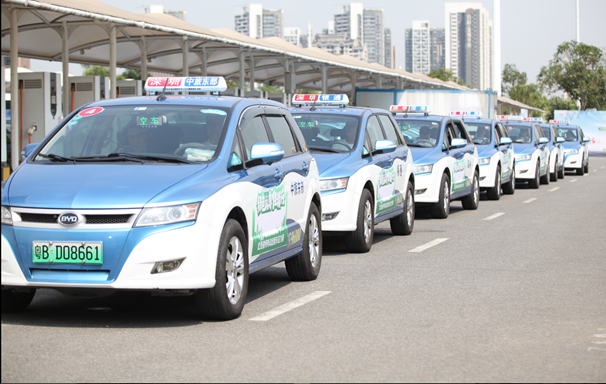As Chinese-made cars continue to shine, traditional Japanese automakers may face losing a larger share of the global market.
On July 8, according to data from research company MarkLines cited by Nikkei Asia, electric vehicle (EV) sales in Asia and Oceania grew about 50% year-on-year in May, hitting 530,000 units. This surge is particularly notable in Thailand and Australia.
Specifically, EV sales in Thailand grew 13-fold in May, reaching 5,000 units, which elevated the share of total car sales from 0.5% to 7%. In Australia, EV sales increased 15-fold in May, hitting 7,000 units, boosting the share from 0.5% to 7%. These statistics include commercial vehicles such as trucks and buses, as well as passenger cars.
Chinese electric vehicle manufacturers are proactively entering the Thai market. BYD, which accounts for about 40% of EV sales in Thailand, is planning to build a factory in Rayong Province. Meanwhile, Changan Automobile plans to invest 9.8 billion Thai baht (approximately $280 million) to build an EV factory in Thailand. SAIC Motor and Great Wall Motors also have related production plans.
In February 2022, the Thai government introduced policies to attract EV factories, providing a maximum subsidy of 150,000 Thai baht for passenger vehicles priced at 2 million Thai baht or less, on the condition that production begins locally by the end of next year.
According to Nikkei Asia, Japanese automakers like Toyota began car production in Thailand in the 1960s, stimulating local industrial development. However, the pace of Japanese EVs entering the Thai market is slow, and Japanese automakers overall lag behind in EV development. From January to June this year, EVs made up only 2.3% of passenger car sales in Japan.
In Australia, Tesla accounts for about 60% of EV sales, and BYD holds approximately 20% market share. In April this year, the Australian government announced its first national EV strategy, promising support through the expansion of charging infrastructure.
Approximately 40% of passenger cars imported into Australia come from Japan. Nikkei Asia points out that while Japanese brands have a high market share, particularly in the pickup sector, they face a risk of losing market position to competitors like BYD in Australia's EV sector, much like the situation in Thailand.
Data from Toyota shows that the company's new car sales in the Chinese market in June reached 174,500 units, a year-on-year decline of 12.8%. This is the first time in three months that negative growth has occurred. Toyota pointed out that the introduction of vehicle purchase tax reduction measures in China in June of last year spurred rapid car sales growth, and a high base number led to this sales decline.
However, the global sales share of Chinese electric vehicles is rising significantly: after surpassing 5% to reach 6% in November 2020, it soared to 21% in May this year. Nikkei Asia believes that Thailand and Australia could also experience similar accelerated growth.
Looking at the overall automobile market, in the first quarter of this year, China's car exports surpassed Japan's, making it the largest car exporter globally.
According to data from the General Administration of Customs compiled by the China Association of Automobile Manufacturers, China exported 1.07 million cars in the first quarter of this year, a year-on-year increase of 58.1%. In contrast, according to data from the Japan Automobile Manufacturers Association, Japan exported 954,000 cars in the first quarter, a mere 6% increase year-on-year. This marks a milestone in the development of China's automobile industry.
In 2021, China's car exports accounted for 7.7% of the total, exceeding 2 million units for the first time and becoming the world's third-largest car exporting country, behind Japan and Germany. In 2022, China's car export share rose to 11.6%, reaching 3.11 million units, surpassing Germany to become the second-largest car exporting country globally, second only to Japan.
Compared with the same period last year, China's exports of new energy vehicles, including electric vehicles, increased by more than 90% in the first quarter.
Since the Russia-Ukraine conflict, with Western countries imposing sanctions on Russia, China's exports to Russia have surged. Last year, the market shares of Chinese car manufacturers in Russia, including Geely, Chery, and Great Wall, rose significantly.






